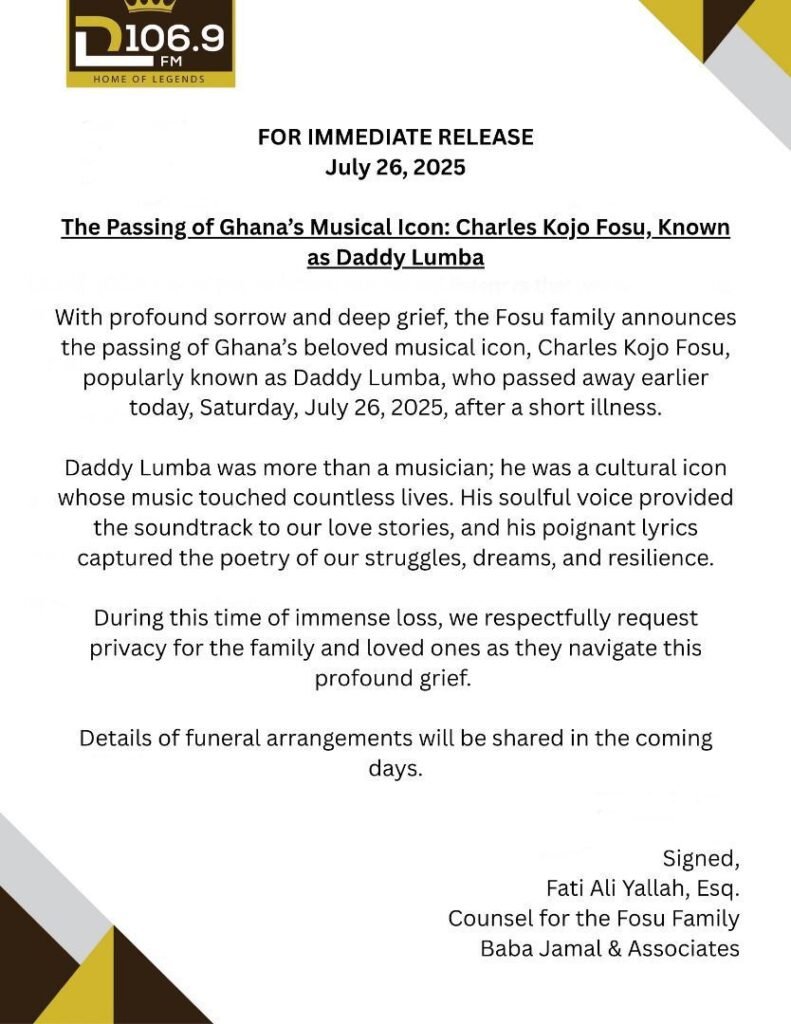Hot!
Be good fathers, not ‘terrorists’ – Rev. Fr. Ayivor

Rev Fr Ignatius Ayivor
Birth among women have reduced significantly in recent times, a new survey by the Ghana Statistical Service (GSS) has revealed.
The survey pointed to a decline in fertility rate that has seen a 1988 statistic of a woman having a minimum of six children dropped to four children per woman in 2022.
The Ghana 2022 Demographic and Health Survey (GDHS), the seventh since 1988, was designed to provide datatomonitor the population and state of health in Ghana.
It aims to provide reliable estimates for fertility levels and preferences, contraceptive use, antenatal and delivery care, maternal and child health, childhood mortality, childhood immunization, breastfeeding and young child feeding practices, violence against women and other indicators relevant to the Sustainable Development Goals (SDG).
According to the report, women in the lowest wealth bracket tends to have six children on the average which is twice as many as women in the highest wealth bracket who have an average of about three children.
Regionally, the fertility rate ranges from two to three children per woman in the Greater Accra region to about six children or more per woman in the North East region.
It also revealed that the median age at first sexual intercourse is 18 years among women aged 25 to 49 and 20 years among men the same age.
The report also stated that the average age at first birth for women aged between 25 and 49 years is 22, saying “this means that half of women aged 25 and 49 years give birth for the first time before this age.”
Reacting to the statistics, a section of women The Spectator spoke to, confirmed the new data and gave reasons such as education, economic hardship and trauma during pregnancies for the development.
Mrs Roselyn Mensah, a banker said she has two children and did not think she would have another child.
According to her, “I want to give my children the best of education. Their fees are a lot and having additional children means we would have to pay more. My husband and I have decided to concentrate on the two and help them attain the highest level of education.”
Madam Ama Serwaa Boateng, a mother of three said, her last pregnancy nearly turned fatal so she decided to end it at three; although her dream was to have four.
Mrs Gifty Oppong, a 40-year old petty trader said, she has four children, adding that the last one was ‘unexpected.’
She cited economic reasons for the decision to have three children initially, saying that “business is not booming as it used to.”
By Jemima Esinam Kuatsinu
Entertainment
Breaking News: Daddy Lumba is dead – Family announces

Ghanaian music legend Charles Kojo Fosu, popularly known as Daddy Lumba, has died.
His family confirmed the sad news in a press release issued on Saturday, saying the 60-year-old passed away earlier in the day after a short illness.
“It is with profound sorrow and deep grief that the Fosu family announces the passing of Ghana’s beloved musical icon,” the statement read.
Daddy Lumba was one of Ghana’s most celebrated highlife musicians. With a career spanning more than three decades, his songs touched millions, telling stories of love, pain, joy, and hope.
He was known for his powerful voice, emotional lyrics, and unique style that made him a household name across the country and beyond.
“His soulful voice provided the soundtrack to our love stories, and his poignant lyrics captured the poetry of our struggles, dreams, and resilience,” the family said.
The family has asked for privacy as they mourn their loss and promised to announce funeral arrangements in the coming days.
The statement was signed by Fati Ali Yallah, a lawyer from Baba Jamal & Associates, on behalf of the Fosu family.
Fans, fellow musicians, and Ghanaians across the country have started pouring out tributes on social media, remembering Daddy Lumba’s unmatched contribution to Ghanaian music.
Entertainment
Edem’s debut album gets praise from Sarkodie

Ghanaian rap star Sarkodie has celebrated fellow artiste Edem for his groundbreaking debut album “The Volta Regime”, calling it one of the greatest albums in Ghana’s music history.
In a heartfelt social media post, Sarkodie, whose real name is Michael Owusu Addo, reflected on the first time he heard Edem rap.
He said he was instantly impressed and knew Edem would have a serious impact on the music scene.
“I remember when I first encountered my brother Edem, I came back home to tell one of my hommies that this guy will have a serious impact on the music scene,”
“He was like naa because of the language barrier. I said I don’t hear language, I hear greatness. Big up my brother, you are still on my favourite emcee list.” Sarkodie wrote.
Edem, born Denning Edem Hotor, released The Volta Regime in 2009. The album boldly embraced the Ewe language and featured collaborations with top Ghanaian artists including Tinny, Kwabena Kwabena, and Jeremie Van-Garshong.
Despite initial doubts about how well Ewe rap would perform commercially, the album proved to be a major success and introduced a new wave of local-language hip-hop.
Songs like Bra Fre Me, Nyorvuviade, and the powerful Intro helped establish Edem’s lyrical prowess and cemented his place as a unique voice in the Ghanaian music industry.
At a time when the local scene was dominated by Twi and Ga-speaking rappers, Edem’s success broke barriers and made it clear that talent speaks louder than language.
His impact opened doors for more linguistic diversity in hiplife and hip-hop music across the country.
Sarkodie’s tribute is especially meaningful because both artists emerged around the same period. Sarkodie’s own debut album Makye also dropped in 2009, and the two have long shown mutual respect for each other’s craft.
Today, over 15 years after its release, The Volta Regime continues to inspire fans and artists alike. It remains a symbol of bold originality and cultural pride.
Edem has since released several projects and remains an active voice in Ghanaian music and youth advocacy. His legacy is a reminder that true greatness is not limited by language.






